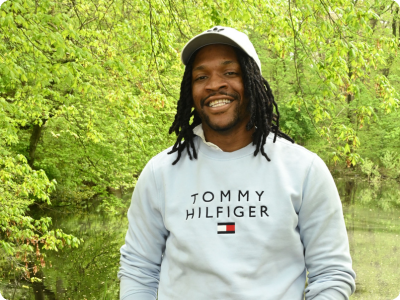The Hidden Curriculum: Origins of The Summer Camp Society's Favorite Buzzwords
If you’ve been a part of The Summer Camp Society community for a few years, months, or even days you have for sure at some point seen us mention The Hidden Curriculum. If you haven’t - don’t fret, you can check it out here: The Hidden Curriculum. Through blogs, videos, in person conferences and the like The Hidden Curriculum, or “Hiddy Crics” for short, always manages to reel its beautiful face into our – for lack of a better word...curriculum. So much so, that revealing The Hidden Curriculum has essentially become a way of life for us “Societers” (can I trademark that?) in our efforts to make camp better for more kids. However, in this article I would like to address a misconception that has been brought to our attention, that we invented The Hidden Curriculum. We did not.
If we didn’t invent The Hidden Curriculum – Who did?
The short answer: I’m not sure😅.
Long Answer (*This is about to get really scholarly..really fast):
Philip Jackson, a philosopher and educator for the University of Chicago, is the most notably credited for coining the term “The Hidden Curriculum” in his book Life in Classrooms (1968). In it he describes the hidden curriculum as the “unstudied” curriculum in schools that reproduces the basic structure of a society. Think intentional reinforcement of social cues -why is that we know automatically to take a seat before a presentation or that it’s impolite to cut the line at an amusement park? However, Jackson drew great inspiration in his studies of The Hidden Curriculum from a French Philosopher by the name of Emile Durkheim, who spoke on the use of traditional schooling to mold collective American values while they are at a more amenable age. Think Pavlog’s dog... but like for kids. He essentially referenced everything about The Hidden Curriculum without naming it.
Well, that’s true, unless you’re in agreement with sociologists who believe Jackson drew his inspiration from Erving Goffman, a Canadian born sociologist who is known, in relation to the Hiddy Crics, for his theory on Total Institution. Total institution is a whole other complex issue I’ll let you read up on yourself – I'm not even going to link it. Goffman also referenced many aspects of what we now know as The Hiddy Crics without putting a name to it. You can see how giving credit for a term as amendable as “The Hidden Curriculum'' can get a little tricky. (That short answer ain’t looking too bad right about now, huh?)
“I came here for Summer Camp Tips…not a graduate level Sociology lesson!”
The Hidden Curriculum & Summer Camp
At this point you’re likely asking yourself - “Self, how in the heck did TSCS boil all of this intellectual jargon down so that the 99% of us summer camp professionals, without a PHD in Sociology, can use it to make camp better for more kids?” Insert my favorite super smart person, Sylvia van Meerten. Sylvia is a long-time camp extraordinaire and real-world people specialist. She is credited for adapting the core concepts of The Hidden Curriculum to exist functionally in our wonderful summer camp space. She uses The Hidden Curriculum to aid us in creating a more inclusive summer camp environment for everyone that steps foot into our community. Whether it be camper, staff, alligator, giant bear – she doesn’t care. She can find a way to reveal a little bit of your hidden curriculum that you likely didn’t even know was there. (Oh, so you’re a poet now Nelson? I digress...) Sylvia drew inspiration for her adaptation of the Hidden Curriculum from Phillip Jackson - remember him? (See: “Insider info creates outsiders at camp”)
The phrase Hidden Curriculum can be considered what’s called “porridge words” or “an imprecise notion that can be stirred around to generate further ideas.” (De Bono) The Hidden Curriculum is ambiguous. It can mean many different things for various groups of people and professions. However, for us “Societers” (you thought I was kidding?) it simply means saying the things we usually don’t say out loud, so that “we can make camp better for more kids” (Schott).
Sources
Sites
-
Wikimedia Foundation. (2022, January 27). Erving Goffman. Wikipedia. Retrieved February 26, 2022, from https://en.wikipedia.org/wiki/Erving_Goffman
-
Wikimedia Foundation. (2022, February 24). Émile Durkheim. Wikipedia. Retrieved February 26, 2022, from https://en.wikipedia.org/wiki/%C3%89mile_Durkheim
Books
DeBono, E. (1976). Practical, thinking.
 Nelson Strickland
Nelson Strickland
Leave a Comment